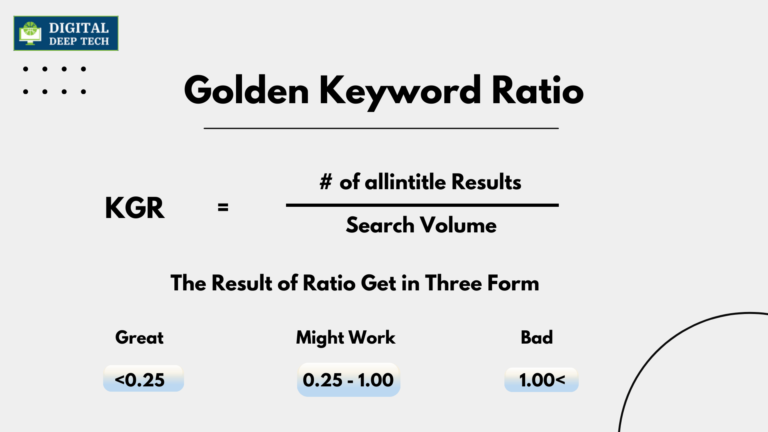Introduction - how to search for keywords on a website?
Keyword research is one of the most valuable ways to identify good search terms for your content. Effective SEO keyword research means finding keyword opportunities and sorting through the data to find what’s worth targeting.
You can improve your chances of ranking well if you invest time in a good keyword strategy, rather than just guessing wildly at topics that have been done a million times before. But where do you start? Here’s the ultimate beginner’s guide to doing solid keyword research and building an effective strategy:
1. Niche Keyword Research
Niche keyword research is a process that can help you find keywords that are relevant to your niche.
This process begins by identifying the types of keywords that you want to target for your site. You can then start creating content for those keywords and use them in your on-page optimization. This will make it easier for people to find your site, which will lead to more traffic and better rankings in search engine results pages (SERPs).
2. Set a Clear Goal
Before you can figure out what keywords to target, it’s important to define your goals. What do you want to achieve under your SEO strategy? What are the tangible results you want from a particular project?
There’s no one right way to define goals for an SEO campaign. People often talk about being ambitious and setting high expectations for themselves, but if those expectations aren’t realistic, then they won’t be met—and that’s not good for anyone involved.
So start with something ambitious and expand from there if necessary; just make sure that whatever goal(s) you set out on achieving are realistic enough so that they’re attainable within a reasonable timeframe (i.e., 3-6 months).
Setting clear goals helps ensure that every action taken as part of the keyword research process will move the needle in a direction that will help meet those objectives.
3. Relevance Keyword Research
Make a list of relevant keywords for your products or services. Keywords should be specific to the content of your text. If you are writing a post about dogs, the keywords would be “dogs.”
If you are writing an article on how to take care of your dog, the keywords would be “dog care.”
4. Identify Search Intent
You should be able to identify search intent from search query.
Search intent is the reason why a person is searching for a keyword. It’s important to know what kind of information they’re looking for and how they want it presented to them. This information can be used to improve the quality of our content and make it more appealing to our audience.
The most popular way to identify search intent is by looking at keyword queries. This is how Google Adwords Keyword Tool works. It displays a list of keywords related to one another based on the number of searches they receive and their relationship with other keywords.


5. Find keywords with Low Competition
Another Keyword research strategy is to find keywords with low competition but has high search volume. Those keywords are easy to rank and help to get high organic traffic.
Here are some of the best ways to find low-competition keywords:
- Use the Google Adwords Keyword Planner. When you search for keywords in the Google Adwords Keyword Planner, you’ll see how many people are searching for them each month and how much competition there is. You can also use this tool to find long-tail keywords that have less competition than standard ones (like “flowers” vs “red roses”).
- Use tools like Google Trends or SEMrush to get general ideas of what people are looking for online. If you want more research on specific topics, these tools make it easier because they show which terms have recently become popular and whether or not these terms have high competition. They also provide information about how often certain terms appear across different platforms (like social media) so that you can choose which ones might be worth targeting as part of your strategy!
6. Create a List of Seed keywords
What are seed keywords? To know this, first we have to understand the intention of the customers.
A seed keyword is a short word or short phrase that when used in a search engine will produce a list of related keywords. It is a short tail keyword that has high competition and high search volume. A few examples of seed keywords are “keyword research”, “keyword tools”, and “keyword finder”. The list of seed keywords will help you with your research. You can use these words to generate new ideas for content.
7. Use Keyword Research Tools
You can do keyword research in a couple of different ways. You can use an online tool, or you can do it yourself manually. To save time and money, most people choose to use a keyword research tool.
There are many good keyword tools out there, but some of the best ones include Google Keyword Planner, SEMrush and Ahrefs. These tools offer a lot more than just the ability to find keywords related to your website—they also give you information about those keywords’ search volume and difficulty level (which helps you figure out which ones might be worth targeting).
It’s important not only that these tools give accurate results, but also that they’re easy for non-technical users like yourself! Fortunately both Ahrefs and SEMrush offer an intuitive interface that’s simple enough for anyone who’s ever used Google before..
8. Identify Long-Tail Keywords
Long tail keywords are a great way to make your content more relevant and targeted. They are not as competitive as head terms, but they have a higher conversion rate.
The long tail keywords research is essential for any SEO campaign. It allows you to find the keywords that are relevant to your business and target them with your content.
Find top Quality Keywords Using KGR Calculator
how to find good keywords? Keyword Golden Ratio is a simple keyword research formula that helps you find the best keywords to rank for. It helps you identify a keyword’s popularity, competition and difficulty so that you can make a smart decision on which keyword to target.
The keyword Golden Ratio is a ratio between keyword allintitle Result and Search Volume. The higher this number is, the more likely your website will rank well in Google. The lower this number is, the more likely your website will rank poorly in Google.
In Detail, The KGR is the ratio of the number of Google results that have the keyword phrase in the title divided by the monthly search volume, where the search volume is less than 250. Visit here to use the KGR calculator.
- Good Keyword: If KGR is less than 0.25
- Better Keyword: If KGR is between 0.25 to 1.00
- Bad Keyword: If KGR greater then 1.00
Keyword Research in Frameworks and Models
How to search for keywords? When you’re trying to find good keywords for SEO, it’s important to keep in mind that there are many different ways of approaching keyword research.
- Keyword research frameworks
- Keyword research models
- Keyword research tools
- Keyword research techniques
Keyword Research Course with Digital Deep Tech
how to find keywords on a website? Here, you can get a free keyword research training! If you want to learn more about this technique, there’s plenty of additional information available online. And if you’re interested in learning even more about free keyword research or SEO as a whole, contact Digital Deep Tech to see what else we’ve written on the topic.
Conclusion
how to find keywords for SEO? We’ve got a lot of content to digest here and if you have any questions, please leave them below. In the meantime, I hope that this guide has helped you understand keyword research concepts better and how to apply them in your business or agency.
For further assistance, you can contact me or buy affordable SEO packages for On-page and Off-page SEO at Digital Deep Tech.


